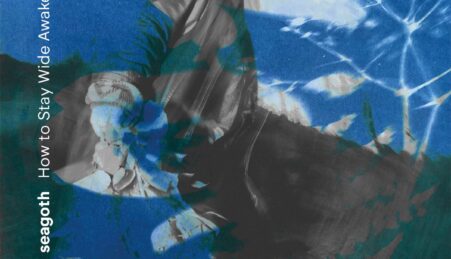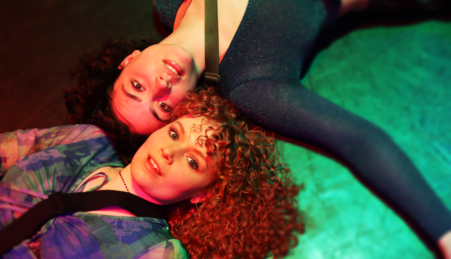
Humanity Hallows Issue 4 Out Now!
Pick up your copy on campus or read online
By Charlie Jordin
Earlier this month, Bernardo Bertolucci sparked anger when a clip emerged from an interview in which he revealed the rape scene in his controversial film Last Tango in Paris was not consensual. The scene involved a character played by Marlon Brando raping a character played by actress Maria Schneider, with a stick of butter as a lubricant, the butter a detail Schneider was apparently not told about and therefore could not consent to. The distraught look on Scheider’s face, therefore, is apparently genuine.
Bertolucci explained that he planned the scene with Brando without telling Schneider because he “wanted her reaction as a girl, not as an actress.” This subsequently left a mental and physical scar on Schneider and her career, the actress later developing a drug addiction and falling into depression. She confirmed that although the rape scene was simulated, it left her humiliated and feeling as if she were ‘a little raped’. Brando even alleged that Bertolucci wanted the two actors, a 48-year-old man and a 19-year-old girl, to have real sex.
Directors abusing their power on set is nothing new. Tippi Hedren recently came forward about her abusive relationship with Alfred Hitchcock, claiming that he sexually assaulted her in his limousine, constructed a secret door between his office and her dressing room, and vowed to ruin her career when she rejected his advances. Hitchcock would allegedly erupt into a rage if he saw her talking to men on set and Hedren claims that the scene in which she is attacked by birds was punishment for rebuffing him. In other scenes in The Birds, mechanical birds were used, but in this scene, live birds were thrown at her and tied to her. The shoot took five days and she remembers breaking down in tears when she was almost pecked in the eye by one of the birds. Hitchcock was allegedly obsessed with Hedren, constructing a replication of her face into a mask for himself and refusing to let her work with other directors. Hitchcock’s powerful influence in the film industry, unfortunately, exceeded Hedren’s, and her career never recovered from his smear tactics. However Hitchcock, as an auteur and as a man, is still highly revered and respected in cinema’s history.
Whilst perhaps some of the worst cases of directors abusing their power on set are mostly in the past, it is still a contentious topic today. Thandie Newton says she was sexually harassed on a casting couch when the director put a camera up her skirt and showed the footage to friends. Chloë Sevigny opened up about sexual harassment in Hollywood earlier this year, claiming directors frequently made her feel uncomfortable with their behaviour and that she turned down roles to avoid sexual advances.
When Megan Fox spoke in an open letter about her experiences with director Michael Bay and her creepy audition for Transformers, which apparently involved Bay filming her as she washed his Ferrari, she claimed that she was verbally abused by crew members. They called her ‘dumb,’ ‘trailer trash’ and said she was better suited for porn. Co-star Shia LeBeouf explained that Fox she “had a hard time accepting” the overtly sexual scenes in the franchise and that the fast-paced nature of filming meant that there was no time for “fluffy talk” to support her emotionally with filming. Whilst Bay is far from ever being considered an auteur, he is one of the most commercially successful directors working today. The franchise also has a huge following of impressionable young people who may learn that a man’s career is more important than a woman’s well-being.
Many film directors have also been involved in or accused of serious crimes. Acclaimed director Roman Polanski raped a 13-year-old girl in 1977. He served just 42 days in prison and won numerous awards afterwards, including a lifetime achievement award. Woody Allen is still making films today despite being accused of sexual abuse by his daughter. Nate Parker was accused of rape whilst he was at college and the news that the alleged victim committed suicide years later sparked debate on whether we can, or should, separate art from the artist. Though the director is not the only person on the set, his or her role is undoubtedly the most important and comes with the most power. This makes it harder for the audience to separate the two, especially when themes in the film permeate into the director’s personal life. A common trope in Woody Allen’s films is that of romance between young women and much older men, some played by himself.
It is important to remember Schneider’s horrific experience in Last Tango in Paris to re-evaluate and question the considerable power directors have in cinema. Artistic endeavour is never an excuse for sexual abuse or manipulation and method acting is not a justification for violating fellow actors. It is also important that we realise that this is not a thing of the past; today, film directors who have abused and even raped have sometimes gone on to have successful careers and are well respected in the industry. Whilst it is possible to separate the art and the artist, we should never forget the people who have been abused in the industry.
Charlie Jordin is an Entertainment Editor at Humanity Hallows and a freelance film writer. She is currently in her third year studying Film and Media at MMU. You can follow her on Twitter or on Instagram @chazzjordin.






Leave a reply